Taking BCAA and Creatine Together: Is It a Good Mix?
Author:
Unlock your full potential by engaging with our experts and community! Have questions about your fitness journey or looking for expert advice on weightlifting techniques? Don’t hesitate — leave a comment below and Jacek Szymanowski will provide a personalized answer and insights to help you reach your goals.
Torokhtiy is reader-supported. Some links are affiliate links, and we may earn a commission at no extra cost to you. See our disclosure page for details.
You may be wondering, can you mix creatine with BCAA?
Yes, taking BCAA and creatine together is completely safe, but it isn’t necessary. BCAAs don’t provide as much benefit, despite being so popular. You’d be better off taking creatine alongside a protein supplement like whey protein powder instead.
If you’re interested in either BCAAs or creatine, we recommend Huge BCAA from Huge Supplements and Creatine HMB from Transparent Labs respectively.
Taking a Creatine and BCAA together is completely safe. While creatine is a very beneficial supplement, BCAAs don’t provide extra benefits when you consume enough protein during a day. You’d be better off pairing creatine with a high-quality protein supplement instead.
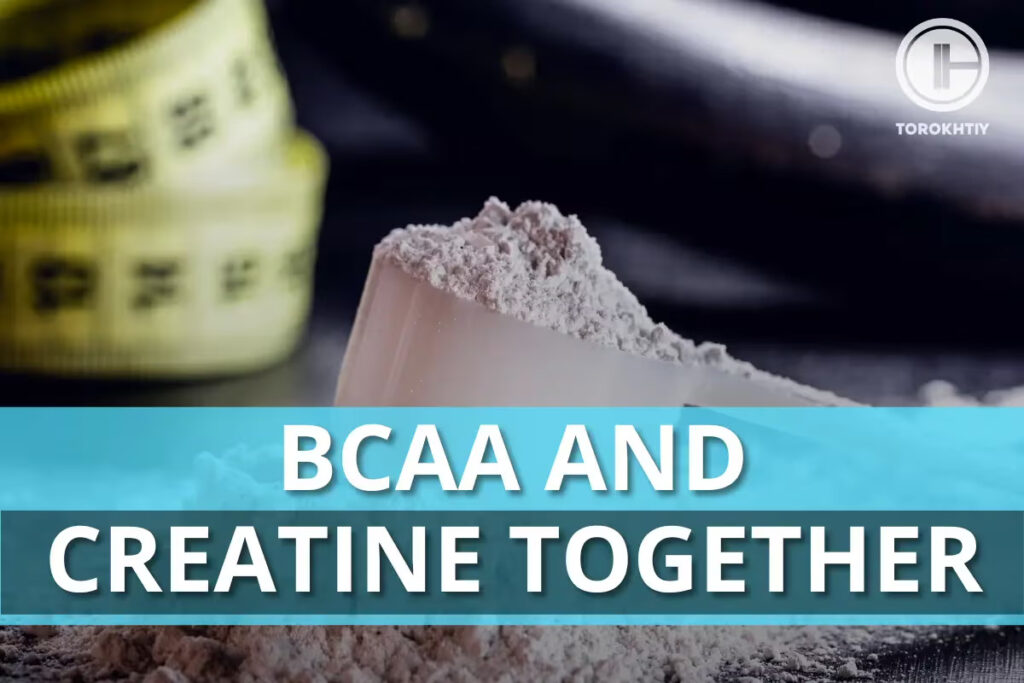
What Is Bcaa?
BCAA is an acronym for branched-chain amino acids. These are leucine, isoleucine, and valine, which make up 3 of the 9 essential amino acids you need to get through diet. BCAAs are commonly marketed as helping with recovery and exercise performance. Here’s why this isn’t necessarily true.
While BCAAs do play a role in providing energy to our muscles, the vast majority of people get more than enough BCAAs through their diet already. This makes supplementation completely unnecessary.
The people who will get the most benefit from supplementation are people deficient in BCAAs. These are most commonly vegans and vegetarians. But, if someone is deficient in BCAAs, they’re most likely protein deficient in general. This means they’d be better off incorporating more protein-rich foods – or a high-quality protein supplement – in their diet rather than taking BCAAs.
Pros/Cons of BCAA
Positives:
Could be better:
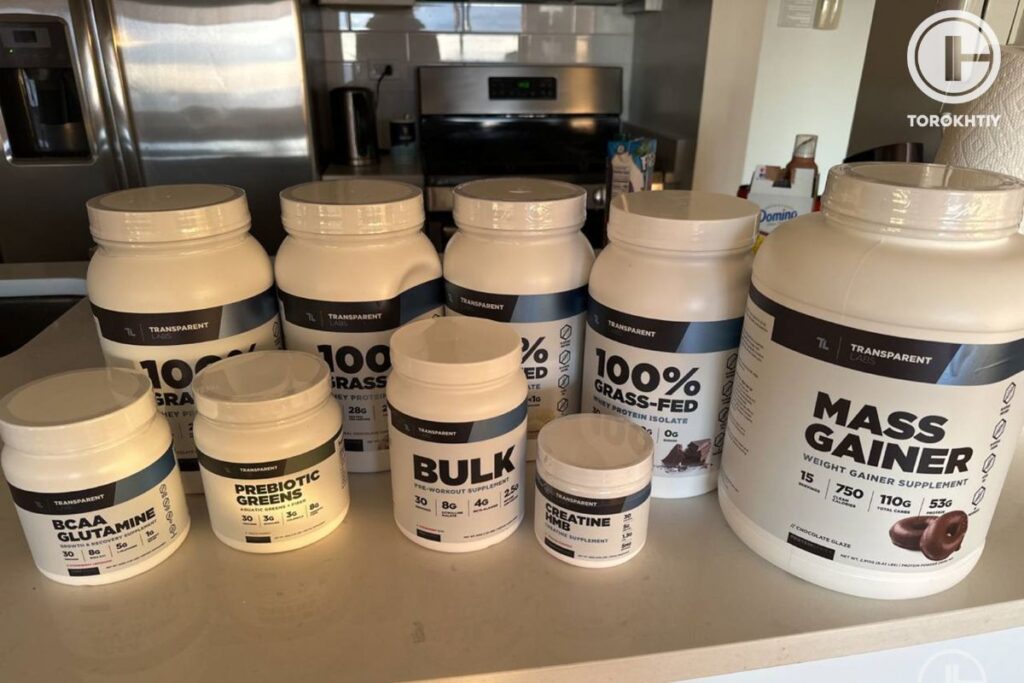
What Is Creatine?
Creatine is a compound that’s both produced naturally in the body and found in the diet through meat. Creatine is largely stored in skeletal muscle and plays a major role in providing energy to the muscles. Most people’s creatine stores are naturally 60-80% full. It’s very difficult to saturate creatine stores through diet alone, which is where supplementation comes in.
With a standard dose of 3-5g of creatine daily, most people will be able to fully saturate their creatine stores within 2-4 weeks depending on their weight. The benefits associated with fully saturated creatine stores include improved high-intensity exercise performance, increased recovery between workouts, and reduced fatigue during exercise.
creatine dosage calculator
Loading Phase:
Maintenance Phase:
Vegans and vegetarians will likely benefit significantly from creatine supplementation as they might not get any creatine through their diet. As a result, their creatine stores will likely be lower than the average omnivore. This will lead to more noticeable differences in performance and maybe even “brain health” when stores are fully saturated.
When supplementing, you should always take creatine monohydrate. Monohydrate is the standard form of creatine that has been around the longest. Alternative forms of creatine are often more expensive, and less researched than monohydrate.
The numerous benefits of creatine make it useful for nearly all athletes. It is also an incredibly affordable supplement, with many brands offering prices less than $0.25 per serving.
Pros/Cons of Creatine
Positives:
Could be better:
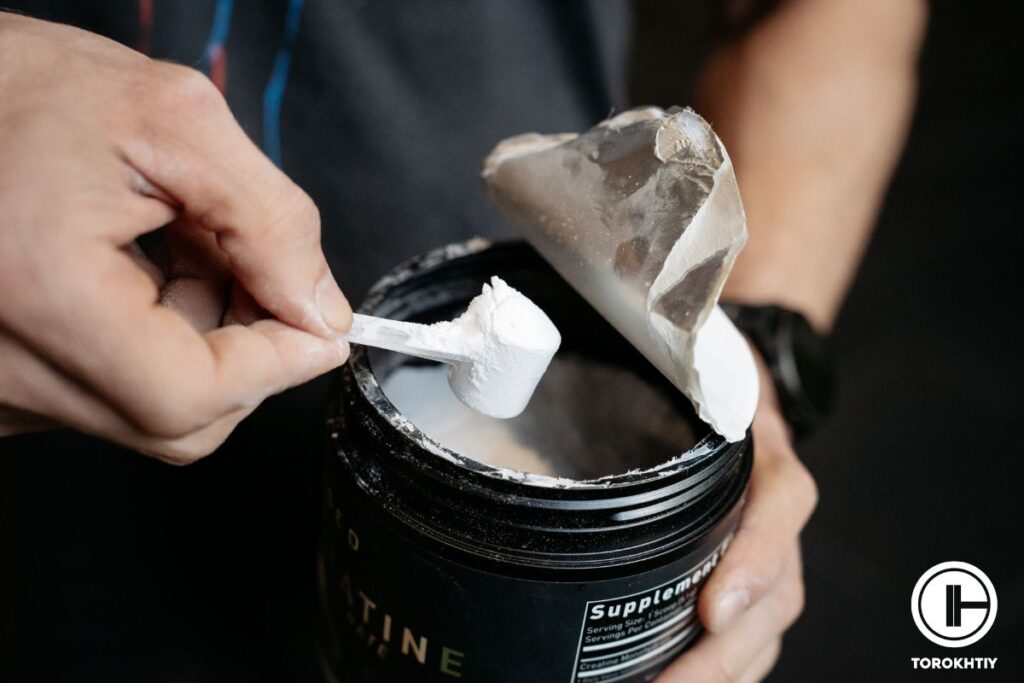
Can I Take Bcaa and Creatine Together?
Yes, there is no reason you can’t take creatine with BCAA at the same time. With that being said, there’s also not much of a reason to specifically take a creatine and BCAA mix either.
As outlined above, creatine is one of the most beneficial sports supplements available. BCAA, on the other hand, will not provide any real benefits to those who already get enough protein. While BCAA would affect those deficient in protein, they’d be better off adding more protein-rich foods to their diet instead.
We usually don’t recommend taking BCAA, whether or not it’s paired with creatine. Your money would be much better spent on high-quality protein sources instead of a BCAA supplement. Although you may enjoy BCAAs for the flavor, there are flavored creatine supplements available that you can try instead.
While taking BCAAs with creatine won’t do you any harm, if you’re already taking creatine, adding BCAAs won’t do you any real good either.
Why the Creatine + Protein Combo May Be a Better Choice?
As mentioned, those taking BCAAs are much better off spending their money on high-quality protein sources instead. Here’s why pairing creatine with a protein powder will be a much better supplement stack than creatine and BCAA.
First, if you drink a whey protein powder, you’ll be getting high levels of BCAAs anyway. Whey is a complete protein, meaning it contains all 9 essential amino acids. If you’re vegan, soy protein powder is a complete protein as well, making it a great alternative to whey.
Because these proteins contain high concentrations of BCAAs, it makes an additional BCAA supplement unnecessary. Especially if you’re deficient in protein, the 20-30g of protein you’ll get from a protein supplement will be much more beneficial than what you’re getting from a scoop of BCAAs.
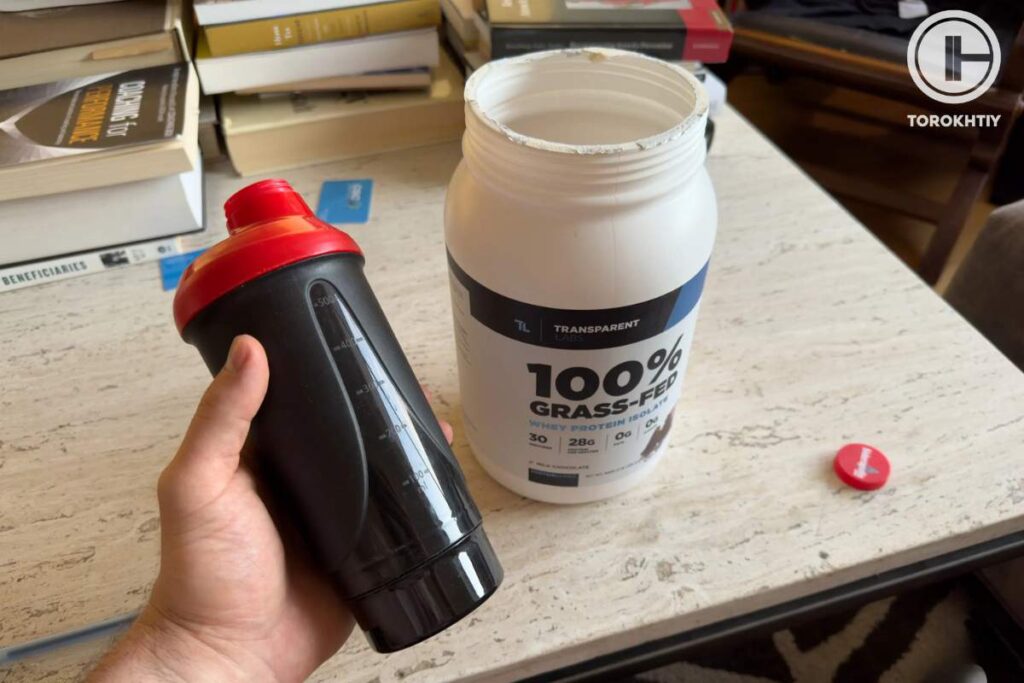
Here’s why pairing a protein powder with creatine is also beneficial. Creatine absorption is influenced by sodium and insulin. Sodium helps transport creatine into the muscles, which is a process improved with higher insulin levels. This means you will absorb more creatine alongside a protein shake, especially one rich in carbohydrates. While creatine absorption rates aren’t that much important, better absorption can help you saturate your muscles quicker when you first begin supplementation.
If you’re looking to pair your creatine with another supplement, you’re much better off going with protein powder over BCAAs. If you’re looking for a high-quality protein powder, consider trying Transparent Labs Whey Isolate.
Best Creatine: Creatine HMB – Transparent Labs
For a high-quality, deluxe creatine supplement, consider trying out Creatine HMB from Transparent Labs.
You’ll get a standard serving of 5g of creatine monohydrate, making it the perfect daily dose for the average person. What makes this product stand out are its additional ingredients.
The main additional ingredient in this supplement is Vitamin D. While you may not expect it, Vitamin D has a ton of benefits for athletes including muscular strength and bone health. Also, with 1 in 4 adults in the U.S. being deficient in the vitamin, it’s a great inclusion here!
This supplement also contains HMB. Although the marketing for this product claims that HMB will produce similar effects to creatine, these claims are somewhat controversial. While HMB may not provide many direct benefits, it likely won’t do any harm either.
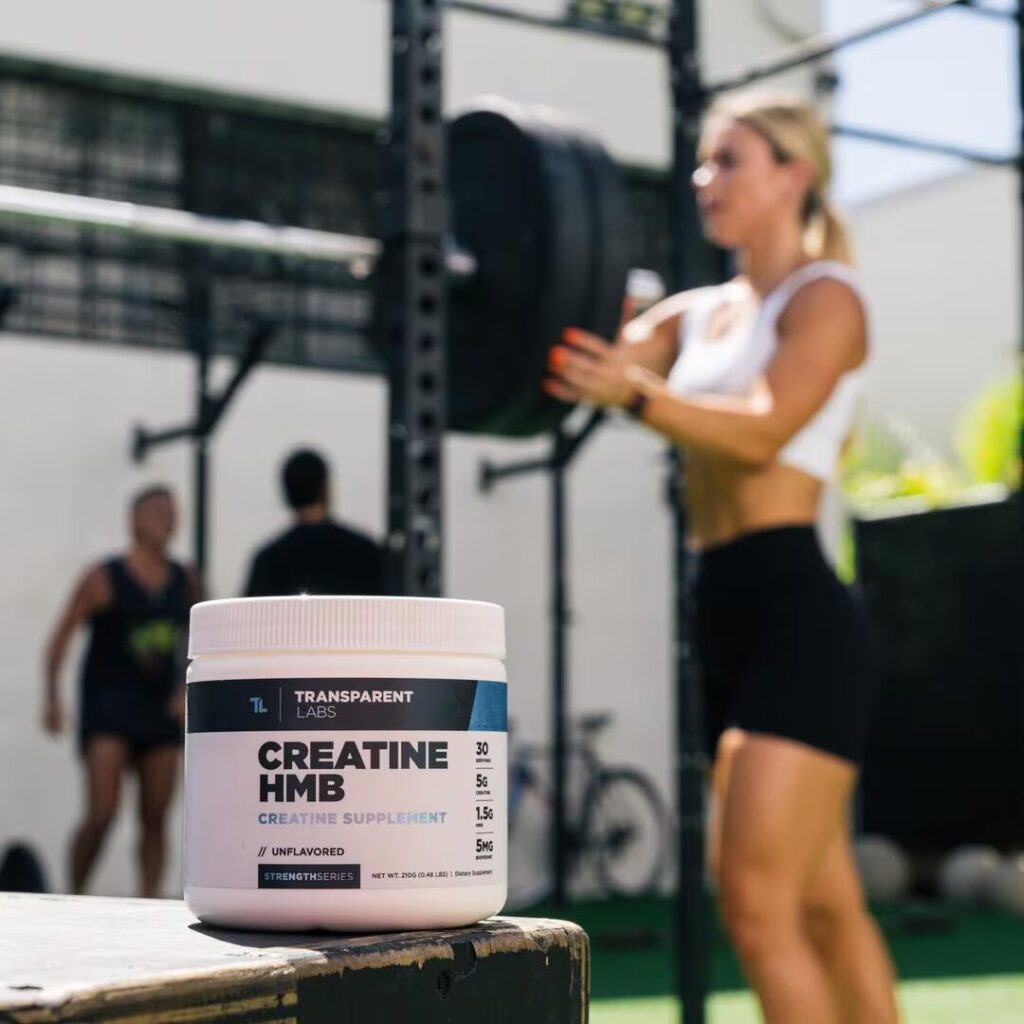
Creatine HMB comes in 11 different flavors, which is rare for a creatine supplement. This makes Transparent Labs a great choice if you were looking to mix BCAA with creatine for their flavor!
Because this is a more deluxe supplement, it is more expensive than a standard creatine supplement. Each serving will cost you around $1.50. This price is justified when you consider the inclusion of vitamin D as well as all the different flavor options. But, if you’re looking for a cheaper supplement, there are plenty of more basic options available.
Best BCAA: Huge BCAA – Huge Supplements
As mentioned throughout this article, we usually do not recommend the use of BCAAs. They do not provide many benefits that can’t be found through a high-quality protein supplement, like Transparent Labs Whey Isolate.
With that being said, there might be a specific situation even aside from weight room, when you can benefit from one so if you’re still interested in trying a BCAA supplement, check out Huge BCAA.
What’s great about this BCAA is that it offers the other 6 EAAs on top of a solid 8g of BCAAs and that might actually make a difference. You’ll also be getting a solid dose of electrolytes, calcium, potassium, and sodium, making it a solid hydration beverage.
Huge BCAA comes in 4 flavors, and reviews suggest it has an excellent taste. So, if you’re looking to take BCAAs for the taste, this would be a good option.
It is also somewhat expensive at around $1.60 per serving. As we’ve mentioned throughout this article, BCAAs aren’t beneficial for the vast majority of people. Your money would be most likely better spent on a high-quality protein powder like Transparent Labs Whey Isolate, which will only cost you slightly more per serving.
FAQ
Do You Need Bcaa and Creatine?
While you don’t necessarily need BCAA or creatine, creatine has significantly more benefits for athletes when compared to BCAAs. That’s why we recommend skipping the BCAA and just taking creatine instead. Important fact: non-essential does not always mean non-beneficial.
What Are the Benefits of Mixing Creatine With Bcaa?
There aren’t any real benefits to mixing BCAA and creatine. If you mix creatine with protein, however, you will have slightly better creatine absorption. This is why we recommend this pairing over creatine and BCAAs.
Can I Take Whey Protein With Creatine and Bcaa?
Yes, but we recommend saving some money by skipping the BCAA and just taking whey with creatine. Whey and creatine are 2 of the best supplements you can take for performance and recovery. Especially with protein helping your body absorb creatine, these supplements are perfect to take together.
When to Take Bcaa and Creatine?
Because creatine is a saturation-based supplement, it won’t matter when you take it as long as you’re taking it consistently every day. BCAA timing also won’t matter for most people. However, if you’re taking BCAA/EAA with electrolytes for distance running, you should drink it either during your run, or directly before for best effects.
Conclusion
While you certainly can mix creatine and amino acids together, there’s no real reason to. If you get enough protein in your diet, BCAAs will have next to no effect on your performance, muscle growth or recovery. Creatine, on the other hand, has a whole host of benefits for virtually all athletes. If you’re interested in pairing your creatine with another supplement, we recommend going with whey protein instead.
If you’re interested in trying a high-quality creatine supplement, we recommend Creatine HMB from Transparent Labs. While we don’t think BCAAs are necessary, if you’re still interested, check out Huge BCAA from Huge Supplements.
Do you take either BCAA or creatine? Were you aware that BCAA didn’t have many benefits for the average person? Let us know your thoughts in the comments below!
Also read:
- How to Cycle Creatine
- Monohydrate Creatine or Kre Alkalyn
- How Much Water for 5G of Creatine
- How Long Does Creatine Stay In Your System
- Creatine For Women
- What Happens When You Stop Taking Creatine
- Types of Creatine
- Does Creatine Cause Bloating
- Best Creatine Chews
- Electrolyte Supplements Guide
References:
- Starkie Sowers, A Primer On Branched Chain Amino Acids (Literature Education Series On Dietary Supplements , 2009), 15, https://www.huhs.edu/literature/BCAA.pdf.
- R Nave, Essential Amino Acids ( 2009), http://surl.li/ldwot
- “Creatine” Press Books, http://surl.li/kvqxs (accessed 2022).
- Richard B. Kreider, Douglas S. Kalman, Jose Antonio, Tim N. Ziegenfuss, Robert Wildman, Rick Collins, Darren G. Candow, Susan M. Kleiner, Anthony L. Almada & Hector L. Lopez, “International Society of Sports Nutrition position stand: safety and efficacy of creatine supplementation in exercise, sport, and medicine” Journal of the International Society of Sports Nutrition, no 14, 18 (2017)
- Darren G Candow 1, Scott C Forbes 2, Sergej M Ostojic 3, Konstantinos Prokopidis 4, Matt S Stock 5, Kylie K Harmon 6, Paul Faulkner, “”Heads Up” for Creatine Supplementation and its Potential Applications for Brain Health and Function” National Library of Medicine 10, no. 10.1007/s40279-023-01870-9.
- Guillermo Escalante a, Adam M. Gonzalez b, Dean St Mart c, Michael Torres a, Jacob Echols a, Mariesha Islas a, Brad J. Schoenfeld, “Analysis of the efficacy, safety, and cost of alternative forms of creatine available for purchase on Amazon.com: are label claims supported by science?” Science Direct, http://surl.li/ldwoz (accessed Des 10, 2022).
- Robert R. Wolfe, “Branched-chain amino acids and muscle protein synthesis in humans: myth or reality?” National Library of Medicine, http://surl.li/ldwpb (accessed Des 10, 2017), 14: 30.
- G. R. Steenge, E. J. Simpson, P. L. Greenhaff, “Protein- and carbohydrate-induced augmentation of whole body creatine retention in humans” Journal of Applied Physiology, http://surl.li/ldwpd (accessed Sep 01, 2000).
- “Vitamin D” The Nutrition Source, https://www.hsph.harvard.edu/nutritionsource/vitamin-d/ (accessed 2022).
- Jasmine S Thomson 1, Patricia E Watson, David S Rowlands, “Effects of nine weeks of beta-hydroxy-beta- methylbutyrate supplementation on strength and body composition in resistance trained men” National Library of Medicine, https://pubmed.ncbi.nlm.nih.gov/19387396/ (accessed May, 2009), 23(3):827-35.
Why Trust Us?
With over 20 years in Olympic weightlifting, strength training, nutrition coaching, and general fitness our team does its best to provide the audience with ultimate support and meet the needs and requirements of advanced athletes and professional lifters, as well as people who strive to open new opportunities and develop their physical capabilities with us.
By trusting the recommendations of our certified experts in coaching, nutrition, and sports training programming, as well as scientific consultants, and physiotherapists, we provide you with thorough, well-considered, and scientifically proven content. All the information given in the articles concerning workout programming, separate exercises, and athletic performance, in general, is based on verified data.
The product testing process is described in more detail here.
Author: Jacek Szymanowski
Certified Nutritionist,
M.Sc.Eng. Biotechnology
Performance Architect,
Strength and Conditioning Specialist
With over 30 years of fighting experience, specialization in nutrition coaching for athletes, and expertise in metabolic health and dietary strategies, Jacek offers a comprehensive approach to optimizing your performance and well-being. Backed by a Master of Science degree in Biotechnology, Jacek remains at the forefront of scientific advancements, ensuring that his coaching is always evidence-based and up-to-date.



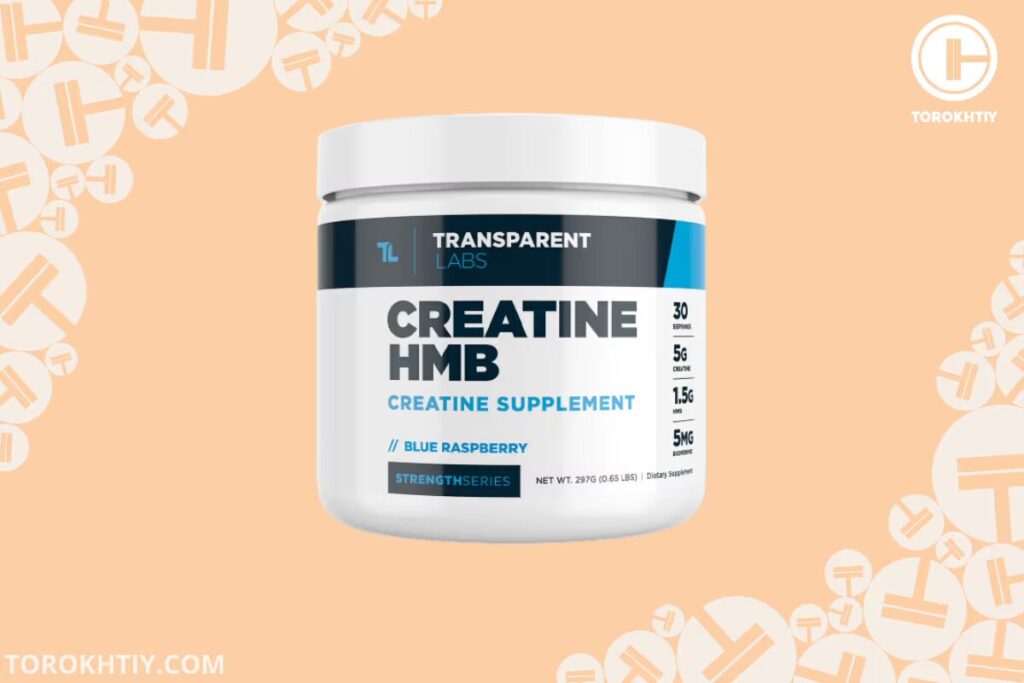
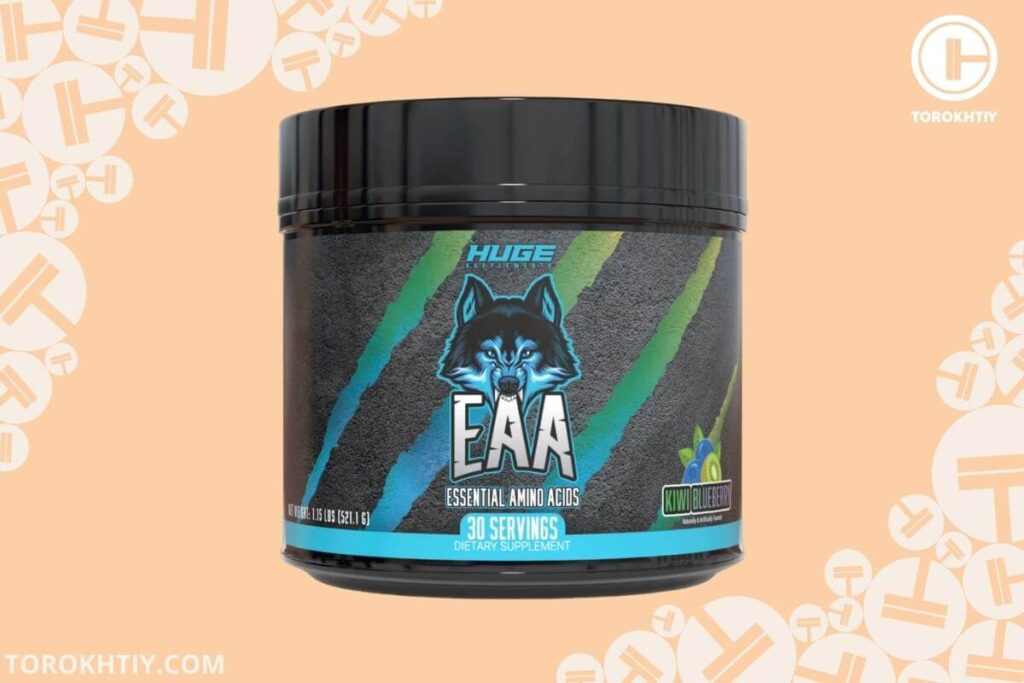
Still have questions after reading our article? Unlock your full potential by engaging with our experts and community! Don’t hesitate — leave a comment below and Jacek Szymanowski will provide a personalized answer and insights to help you reach your goals.